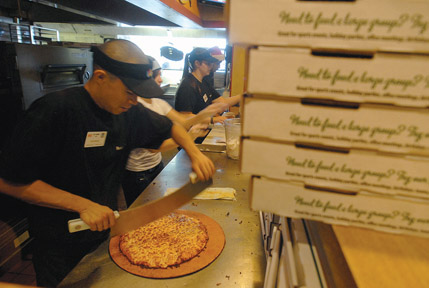A bill authored by Assemblyman Luis Alejo to increase California’s minimum wage passed both houses of the California Legislature on Thursday and was sent to Gov. Jerry Brown’s desk, where the governor has said he will sign it.
“The minimum wage has not kept pace with rising costs,” said the governor in a statement. “This legislation is overdue and will help families that are struggling in this harsh economy.”
The legislation would increase the minimum wage from the current $8.00 to $9.00 by July 1, 2014 and to $10 by January 1, 2016. The bill, AB 10, was approved by the State Senate by a vote of 26-11 and the State Assembly by a vote of 51-25.
An increase to $9 hourly would put California at No. 2 on the list of states with the highest minimum wages in the nation. Washington has the highest, at $9.19 an hour. Once the $10 hourly wage kicks into gear in 2016, unless other states also raise their minimum wages, California will have the highest minimum wage in the nation.
“With over 60 percent of our minimum wage workers 26-years-old or older, we have created a system where we pay workers less but we need them to spend more,” said Alejo in a statement. “That causes middle class families to fall down the economic ladder.”
“I feel this is good,” said Martha Booker, the chapter president for the SEIU local 521. “People will have a little more money to spend.”
The chairman of the San Benito County GOP said he is “strongly opposed” to the minimum wage bill from Alejo, D-Salinas.
“It will lead to more unemployment for the inexperienced and young workforce,” Robert Bernosky said. “Minimum wage jobs should be temporary jobs.”
Moreover, he said he is concerned the bill would increase costs for businesses and workers alike.
“They’re going to pay more for their food,” he said.
State Sen. Anthony Cannella, R-Ceres, did not release an official statement, but voted against the bill in the Senate, said his spokesman.










